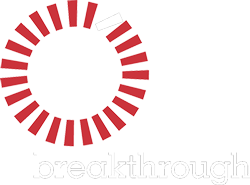VOICES OF BOYS: MESSAGE OF NON-VIOLENCE
postcrescent.com
Katherine Lymn
2/28/2016
Gathered in the middle of the Horizons Elementary School library over lunch, a group of fifth- and sixth-grade boys talked about things that didn’t come naturally: Emotions. Relationships. Girls.
But that was the point.
The group, which kicked off earlier this month, is the youngest audience reached yet by local collaborators who want to re-teach masculinity. Local high school students, the Boys and Girls Clubs of the Fox Valley and Voices of Men collaborated to encourage boys to talk about their feelings rather than bottle them up, and discuss how phrases like “throwing like a girl” lead to devaluing women and girls.
Typically, education focuses on high school, college-aged and older men, but everyone agrees — the younger the education starts, and the earlier the masculine “norms” are interrupted, the better.
On the heels of Horizons’ effort is a group starting this spring at at Kaleidoscope Academy and Roosevelt Middle School. Together, they’re the first groups of their kind at elementary and middle schools in the area, and many say they could serve as models down the road.
“You have to start somewhere so you start … planting the seeds,” said Al Brant, the principal at Kaleidoscope and Roosevelt, said of starting conversations young.Horizon Elementary School student Noah Wallace listens to volunteers from Fox Cities Voices of Men and students from Appleton East High School during a Passport to Manhood meeting.
Brant said he thinks the model can apply to more schools in the future.
“Once it gets started and people can see that it’s making a difference or it’s having some success,” he said, “it’s easier then for people to kind of follow because then there’s a template.”
Eating pizza at the first meeting of the so-called “Passport to Manhood” group at Horizons, Appleton East High School student Aaron Barton, a facilitator who is involved in a similar group at his school, got the conversation going with his table.
“When somebody says ‘be a man,’ what does it mean?” he said. “Hopefully by the end of this, you realize it is OK to have emotions.”
The refrain after people see some of society’s ugliest problems, like rape, school shootings or suicides, is that the problems started young for the often-male perpetrators. Men, many say, are quickly taught to confine their emotions and to be strong, steadfast, stoic. But of course the emotions are still there, and just come out later in different, less healthy and, in some unfortunate cases, violent ways.
So start young, the experts say.
It was the lessons from the older boys’ groups but repurposed for a younger audience, said Shannon Kenevan, community engagement leader for Voices of Men.Who are your favorite superheroes, facilitators asked the boys at Horizons, and why? Do you think turning into a giant green monster and smashing things, like the Hulk, is really the best way to handle problems?
The boys at Horizons Elementary had seen that girls in their class had an optional lunchtime group.
“Essentially boys were saying, ‘Where’s our group?’” Kenevan said.
Work engaging men in the prevention of violence against women has exploded in the past seven to 10 years, said Joe Samalin, who does men’s engagement work nationally with the human rights group Breakthrough. But reaching audiences as young as fifth-graders, as is happening now in Appleton, is rare, he said.
“There’s always been a push for us to work younger,” Samalin said. “How can we get these messages out earlier? Is it too late if we do it in college?”
Just as important as starting young, Samalin said, is keeping the conversations going throughout a boy’s upbringing, and into manhood.
“We need the 8-year-olds and the 80-year-olds thinking about this stuff,” he said.
Find the original article here.
